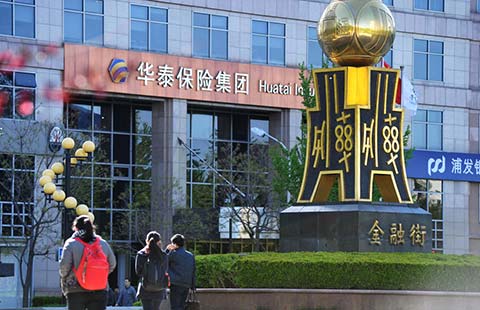World Bank report showing minimal growth in developed countries under TPP expected
(Xinhua) Updated: 2016-01-12 14:54SYDNEY - The World Bank's analysis of growth in developed countries signed to the Trans-Pacific Partnership to be all but non-existent was expected, an expert told Xinhua on Tuesday.
A comprehensive analysis by the World Bank, released on Monday, shows Australia will only obtain a 1 percent increase in GDP over the next 10 years from the Trans-Pacific Partnership (TPP), the United States even less, if and when the agreement is to come into force.
The World Bank's economic analysis is not surprising, director of the Institute of Global Finance at the University of New South Wales, Professor Fariborz Moshirian told Xinhua, given it is expected smaller economies will be the main beneficiaries.
However over the 15-year outlook of the analysis there will be many other forces in the Asia-Pacific at play, Moshirian said, meaning the TPP may not be the only dynamic force driving economic prosperity.
"We don't know the final outcome of this free trade agreement because another force which shouldn't be underestimated is Doha round of trade negotiations," Moshirian said, noting the protracted discussions show it is not easy to achieve multilateral trade agreements.
"In the next 5-10 years this particular block may not necessarily be very relevant depending on how other forces will evolve in the Asia-Pacific and globally."
A free trade zone encompassing the 21 APEC members, who currently account for 50 percent of global GDP, is also expected to be implemented if agreements can be reached.
Economic modelling in 2014 shows the Free Trade Area of the Asia-Pacific (FTAAP) will be more effective for regional trade growth than the TPP, suggesting income gains will be eight times higher than the US-led treaty.
Since sealing the TPP deal in October, Australia and US political leaders have described it as a foundation to building regional trade links and a boon for Asia-Pacific growth.
Moshirian however says there are still a lot of uncertainties surrounding the actual economic impact as the full data has not yet been disclosed.
"There's a lot of assumptions made in this process," Moshirian said.
"The Australian government and maybe other countries, they haven't disclosed all the data, all the information and the detail of this FTA. It's very hard to quantify genuinely what are the real gains."
- Photo studio takes people back in time
- China's Yang Shaolin appointed as World Bank Group's senior official
- NDRC approves $27b projects in first 10 days of new year
- Shares fall below offering price amid market rout
- Wanda acquires Legendary for $3.5b in biggest Chinese overseas deal
- Uber's China unit secures new funding, firm revalued at $7b
- Report plays down overcapacity cut's unemployment impact
- China to strengthen risk control on local govt debts

















